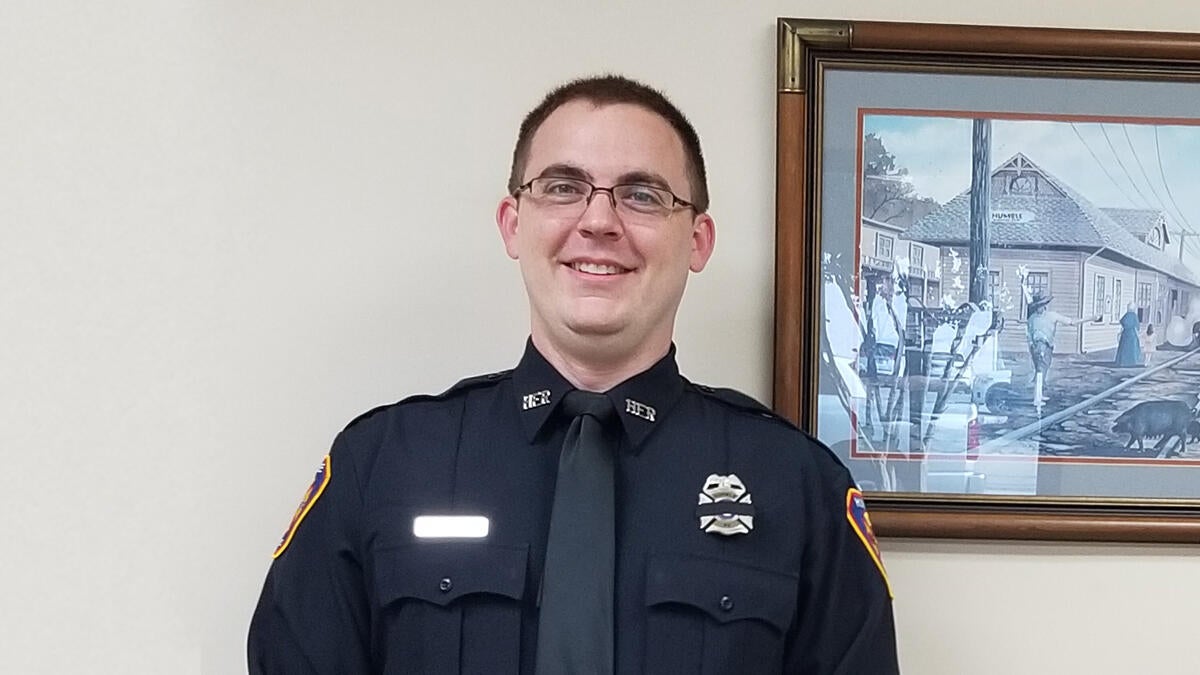Achieving your dream takes discipline, perseverance and hard work. Working hard to reach a goal is something ASU Online student and Texas resident David Jacobson knows well.
Jacobson's goal has been to attend the University of Houston College of Medicine and he was excited to learn recently that his application to their program has been successful. He will start in the program this summer.
Jacobson describes his academic beginnings in 2010 as “less than stellar,” realizing he wasn’t yet ready for the demands of college. Not giving up on his dream to be in medicine, he completed paramedic school and fireman training. Being a paramedic helped teach him discipline and hone the skills necessary to pursue his dream of becoming a medical doctor.
However, before attending medical school, Jacobson realized he would need to earn a bachelor’s degree. Earning a degree while working full time as a paramedic and part time as a paramedic instructor would be challenging.
“I needed a flexible degree program, which is why I decided to pursue my degree online,” Jacobson said.
Jacobson researched degree programs nationwide, focusing on those that met medical-school requirements.
“I called at least two dozen schools," Jacobson said, "but finding an online program that would meet all of the pre-requisites for medical school wasn’t easy. I saw an advertisement from ASU, and after speaking with School of Molecular Sciences Clinical Assistant Professor Ara Austin, I realized that science not only could be done well online, but that it was being done well at Arizona State.”
Jacobson has found ASU’s online program both challenging and rewarding, especially while working up to 65 hours per week.
“Once I set a schedule and stuck to it, things got easier,” Jacobson said.
Being able to adjust the playback speed of recorded lectures helped Jacobson make the most of his time. He sped up lectures when familiar with the material and slowed them down or replayed them when the concepts were challenging. What he found most helpful, however, were the instructors.
"When I started online school, the amount of time I was putting in was enormous,” Jacobson said. “However, when I started attending office hours the instructors helped me understand where I was struggling. I began to understand more and use my time more efficiently and effectively.”
Jacobson credits his success to many of his ASU professors.
“Professor (Ian) Gould went above and beyond in office hours. All of my teachers — Ashli Morgan, Gary Cabirac and Scott Lefler, as well as others — answered my questions and made sure I understood the concepts. The conversations I had with them, as well as with Ara Austin and Kirstin Hendrickson, went beyond the class and deeper into the subject matter.”
Looking back over his journey at ASU, Jacobson admits it hasn’t been a solo journey.
“You have to have a community of support, and I had that at ASU. My fellow students provided peer support through study groups. The professors were supportive. Most of all, my wife has been my biggest cheerleader.”
Laughing, Jacobson said, “I was so excited about what I was learning; I would drive my wife crazy talking about biochemistry.”
Jacobson’s advice for students: “Attend class, utilize office hours and have a support system. Most of all, appreciate the opportunity you have and don’t waste it.
"I consider myself fortunate to have been part of the SMS biochemistry program. I have to thank every single professor and classmate I’ve had along the way to achieving my dream.”
More Science and technology

Will this antibiotic work? ASU scientists develop rapid bacterial tests
Bacteria multiply at an astonishing rate, sometimes doubling in number in under four minutes. Imagine a doctor faced with a…

ASU researcher part of team discovering ways to fight drug-resistant bacteria
A new study published in the Science Advances journal featuring Arizona State University researchers has found…

ASU student researchers get early, hands-on experience in engineering research
Using computer science to aid endangered species reintroduction, enhance software engineering education and improve semiconductor…
